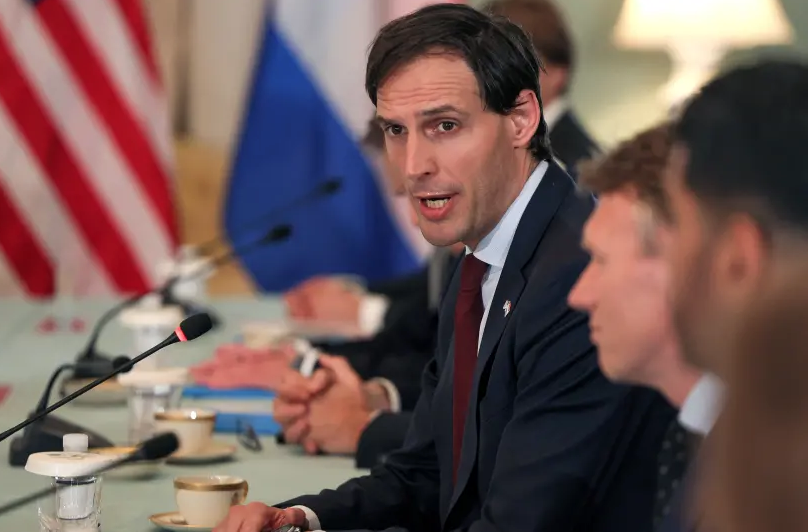Dutch Foreign Minister Wopke Hoekstra: “The cabinet does not agree with Amnesty’s conclusion that there is apartheid in Israel.”
The government of the Netherlands has rejected Amnesty International’s report accusing Israel of apartheid against the Palestinians, Dutch Foreign Minister Wopke Hoekstra has said.
“The cabinet does not agree with Amnesty’s conclusion that there is apartheid in Israel or the territories occupied by Israel,” Hoekstra wrote on Friday to a group of legislators asking the government to respond to the report.
“Apartheid is a specific legal term and a serious international crime, and it is up to a judge to judge whether this is the case,” the Dutch foreign minister wrote. “In light of the above, the cabinet also rejects the recommendations made by Amnesty in the report.”
Hoekstra pointed out that Germany, the US and the UK rejected the report, as well, and said that calling Israel an apartheid state does not help resolve the conflict and reach a two-state solution.
“The Israeli branch of Amnesty International – which has generally been critical of its own government and Israeli policy toward the Palestinians – has also distanced itself from the report in question, as it would be counterproductive and would not improve the situation on the ground,” he added.
The MPs writing to Hoekstra also asked the Dutch government to respond to Israel’s decision to declare six Palestinian NGOs terrorist groups, and a group of pro-Israel MPs sent a counter letter asking why the Netherlands continues to vote against Israel at the UN despite committing to do otherwise. Hoekstra wrote his letter in response to all of them.
With regard to the terrorist designation for the NGOs, Hoekstra wrote that the Netherlands “has not yet reached a conclusion on the information on the basis of which the Israeli decision was taken with regard to the six NGOs.”
Defense Minister Benny Gantz decided in October to ban six Palestinian organizations – Addameer, Al Haq, Bisan Center, Defense for Children International-Palestine (DCI-P), Union Of Agricultural Work Committees (UAWC) and the Union of Palestinian Women’s Committees (UPWC) – due to their affiliations with the Popular Front for the Liberation of Palestine, a designated terrorist group in Israel, the US, the EU and elsewhere. Among the ways Israel demonstrated that connection was a video of leading figures in the NGOs, including Khaleeda Jarrar and Abdullatif Ghaith of Addameer, Shawan Jabarin of Al-Haq, Gebril Muhamad of Bisan, and Ahmad Saadat of the UPWC, at a PFLP event.
At the UN, Hoekstra said, the “Dutch commitment in resolutions… is aimed at achieving balanced and factual texts, preventing disproportionate attention to Israel,” while trying to vote as a bloc with the rest of the EU as much as possible.
“Thanks in part to the Netherlands’ commitment during the negotiations, the language of the Palestinian resolutions has been better balanced,” he argued.
The Netherlands has also called to reduce the number of resolutions under the UN Human Rights Council’s Agenda Item 7, the permanent agenda item condemning Israel.
